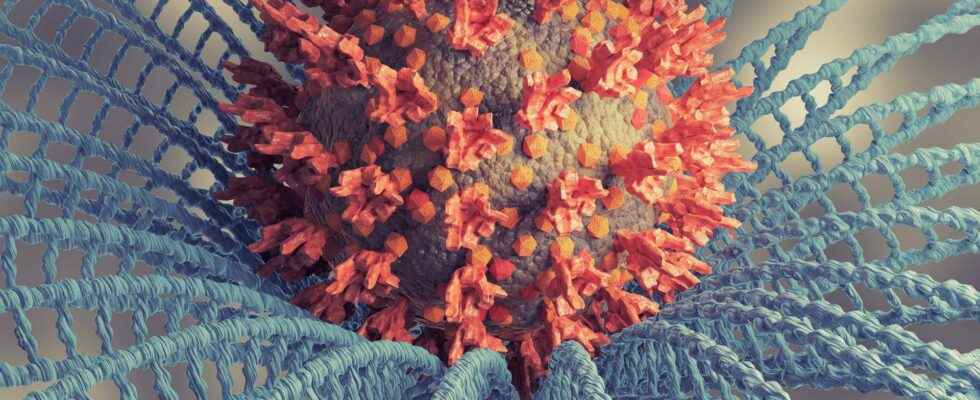How long does the longest Covid-19 infection last? And the shortest reinfection? At a scientific congress in Portugal, scientists presented the case of two patients who are breaking all records.
In France, 28 million of Covid-19 cases have been identified since the start of the pandemic, and more than 500 million worldwide. A multitude of cases which revealed how complex this disease was in terms of the symptoms it induces, in its durationor its severity. At the congress European Society Of Clinical Microbiology And Infectious Diseaseswhich is being held this week in Portugal, researchers presented record cases of infections and reinfections caused by Covid-19.
The shortest reinfection
With l’emergence more variants contagious of SARS-CoV-2, reinfections are commonplace. An infection with SARS-CoV-2 is considered a reinfection when a period of time passes during which the person is asymptomatic and the screening tests are negative. On average, reinfection occurs several months after the primary infection. In the case of this Spanish nurse, it’s only 20 days! This is quite simply the shortest period of time between two infections ever documented.
The patient was tested positive for the first time on December 20, 2021. Asymptomatic and vaccinated, she isolated herself for ten days before returning to work after a negative test came back. On January 10, she contracted fever, cough and fatigue. The screening test is positive for the Omicron variant – the variant Delta was responsible for his primary infection.
The longest infection
Another record presented at the congress, that of the longest infection documented to date. In England, scientists have followed nine patients with a particular profile, they are immunocompromised. In the latter, the infection lasts an average of 73 days compared to around ten in the general population. Their immune system weakened fights infection much harder, resulting in positive drug tests for a long time.
Among the nine English patients, one of them smashes all records. At his last follow-up examination, he was still infected, 412 days after the first positive screening test. He is undergoing treatment based on monoclonal antibodies to try to get rid of it. If that doesn’t work and he remains positive until his next test, he could be the patient with the longest infection ever documented: 505 days. The previous record is 335 daysalso in an immunocompromised person.
Interested in what you just read?
